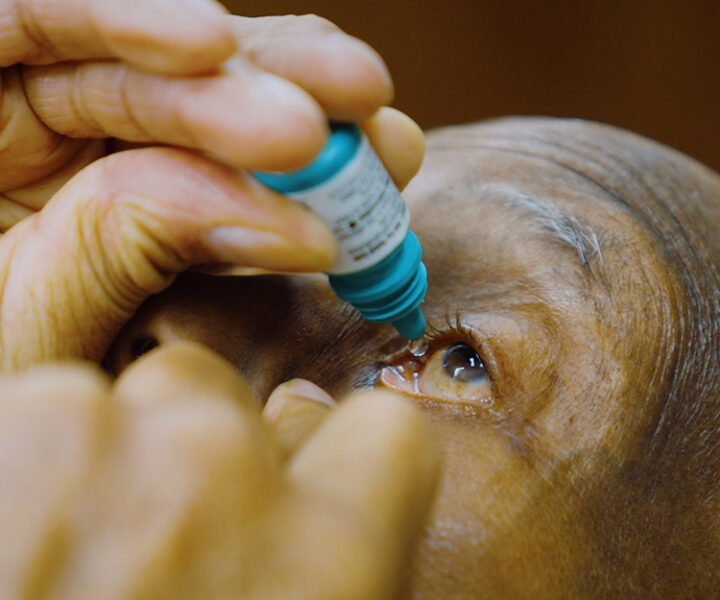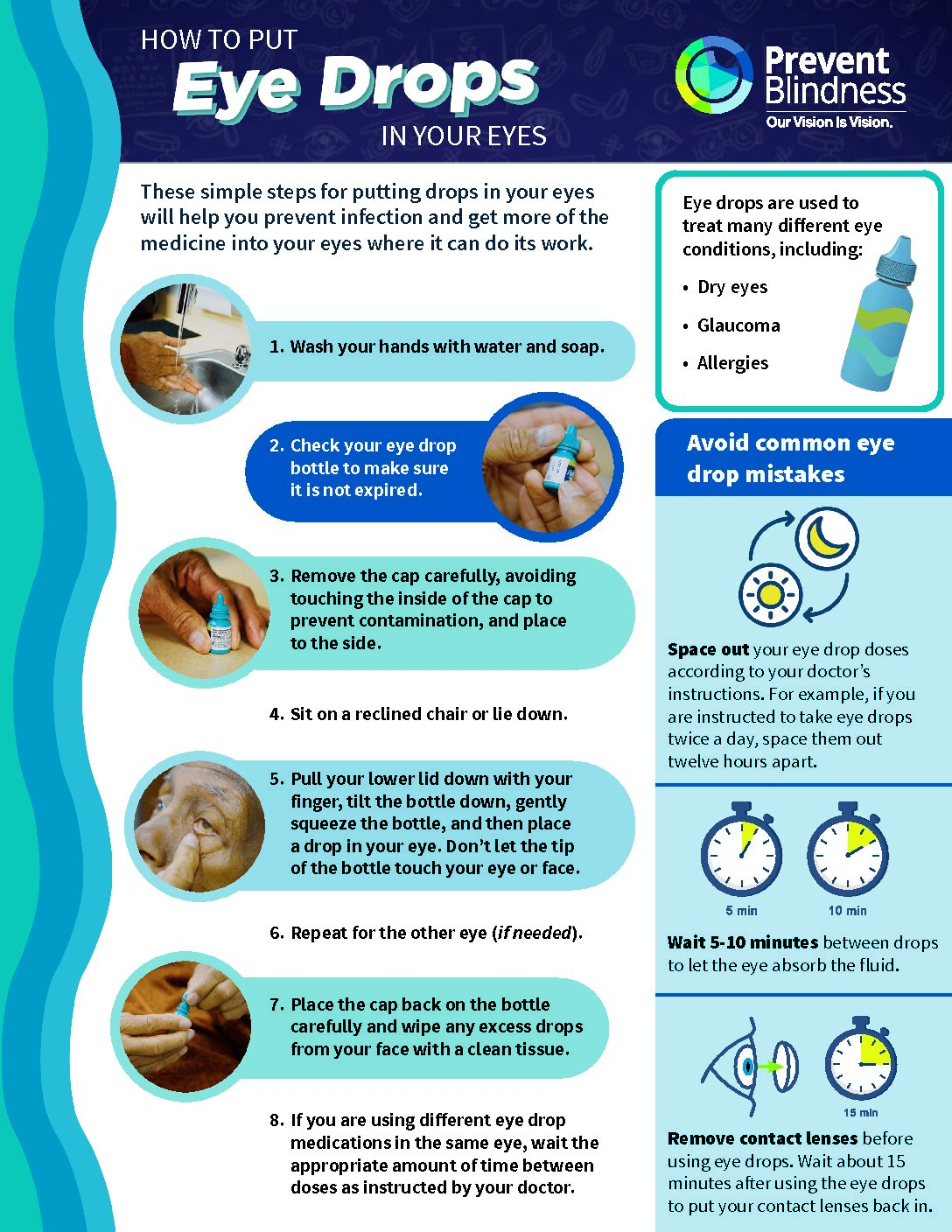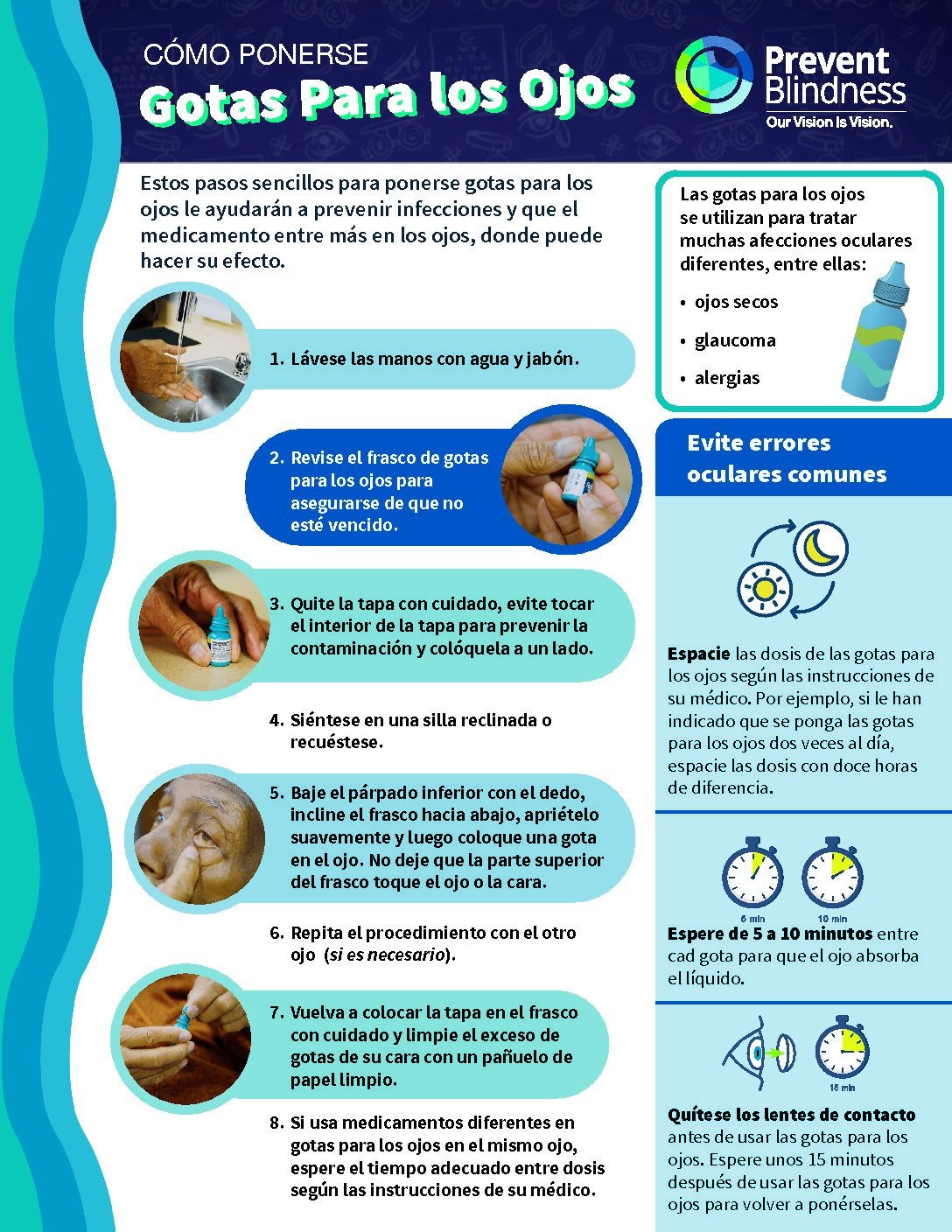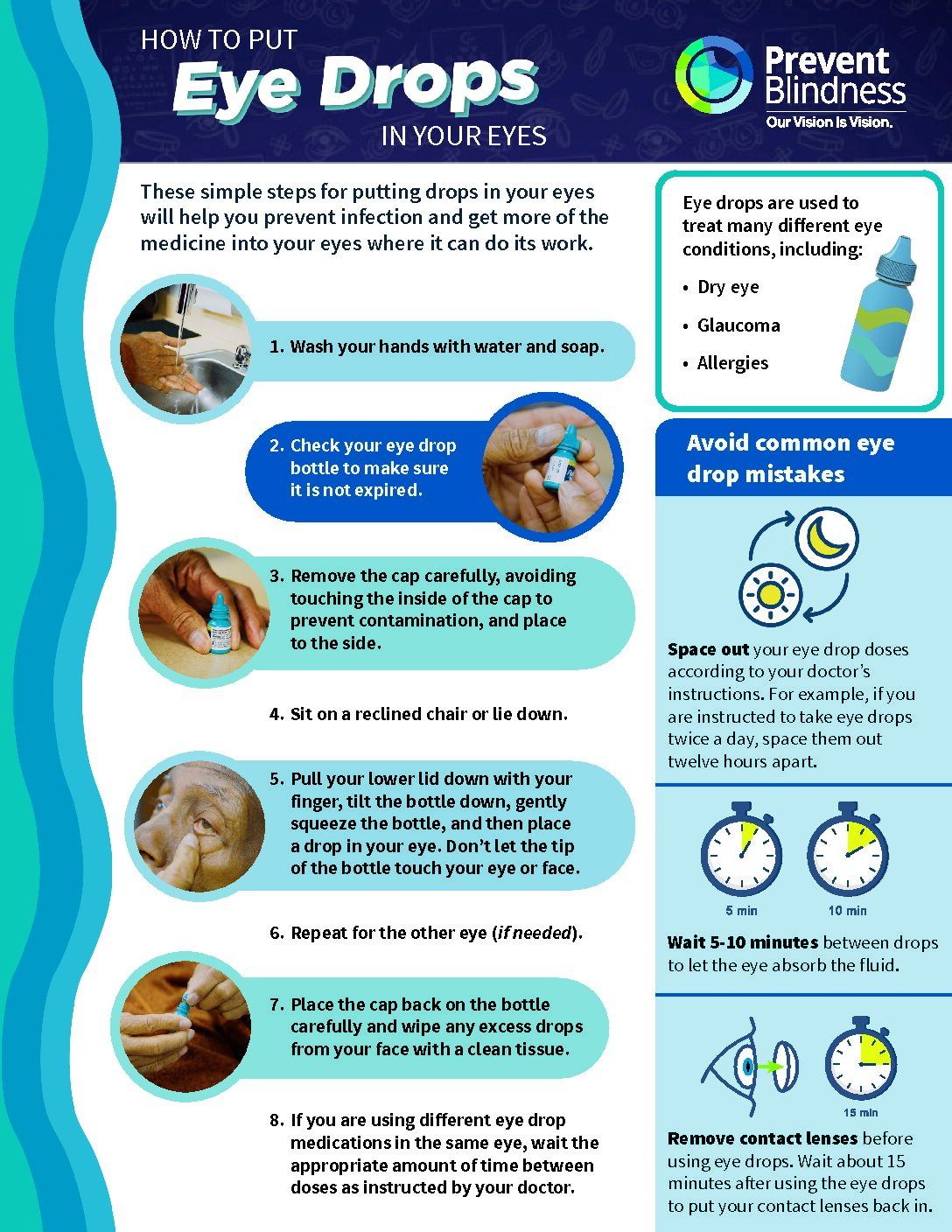These simple steps and tips for putting drops in your eyes will help you prevent infection and get more of the medicine into your eyes where it can do its work.
How to Take Eye Drops
Learn more about eye and vision health.
Subscribe to the Prevent Blindness YouTube channel!
Steps for Taking Eye Drop Medicine
1. Wash your hands with water and soap.
2. Check your eye drop bottle to make sure it is not expired.
3. Remove the cap carefully, avoiding touching the inside of the cap to prevent contamination, and place to the side.
4. Sit on a reclined chair or lie down.
5. Pull your lower lid down with your finger, tilt the bottle down, gently squeeze the bottle, and then place a drop in your eye. Don’t let the tip of the bottle touch your eye or face.
6. Repeat for the other eye (if needed).
7. Place the cap back on the bottle carefully and wipe any excess drops from your face with a clean tissue.
8. If you are using different eye drop medications in the same eye, wait the appropriate amount of time between doses as instructed by your doctor.
More Tips for Taking Your Eye Drops
Some eye drops may burn, such as those prescribed for glaucoma, and this is normal. This can help you know that you got the drop in your eye.
Use reminder applications (apps) on your smart phone or device or use an alarm to help you remember to take your eye drops at the right time each day.
Bring eye drops with you when you’re traveling. Try not to miss any doses!
Devices are available if your hands shake or you have trouble squeezing the eye drop bottle. Talk to your eye doctor about these options.
Have a loved one watch you use your eye drops so they can let you know if you are using it correctly.
If you experience itching or redness around your eye after using eye drops consistently, be sure to let your eye doctor know.
Talk to your eye doctor if you have any questions or concerns about possible side effects of your eye drop medication.
Bring your eye drops with you to your eye doctor appointments to make sure you are taking the doses correctly.
Store your eye drops as directed by your eye doctor and directions on the bottle.
Avoid Common Eye Drop Mistakes
Space out your eye drop doses according to your doctor’s instructions. For example, if you are instructed to take eye drops twice a day, space them out twelve hours apart.
Wait 5-10 minutes between drops to let the eye absorb the fluid.
Remove contact lenses before using eye drops. Wait about 15 minutes after using the eye drops to put your contact lenses back in.
Fact Sheets to Print and Share
More Resources for Glaucoma Patients
The Glaucoma Community is a FREE online community where you can learn about glaucoma, connect with others with glaucoma, and keep your health organized.
Glaucoma Financial Assistance Information
The Glaucoma Financial Assistance Information provides is a list of organizations and companies that provide financial assistance for your glaucoma care.
Learn more about preventing vision loss from glaucoma.
More Resources for Dry Eye Patients
Dry eye is often misdiagnosed and can cause damage to the front of the eye. If you think that you may have dry eye you should visit an eye care professional for a full eye examination.




























